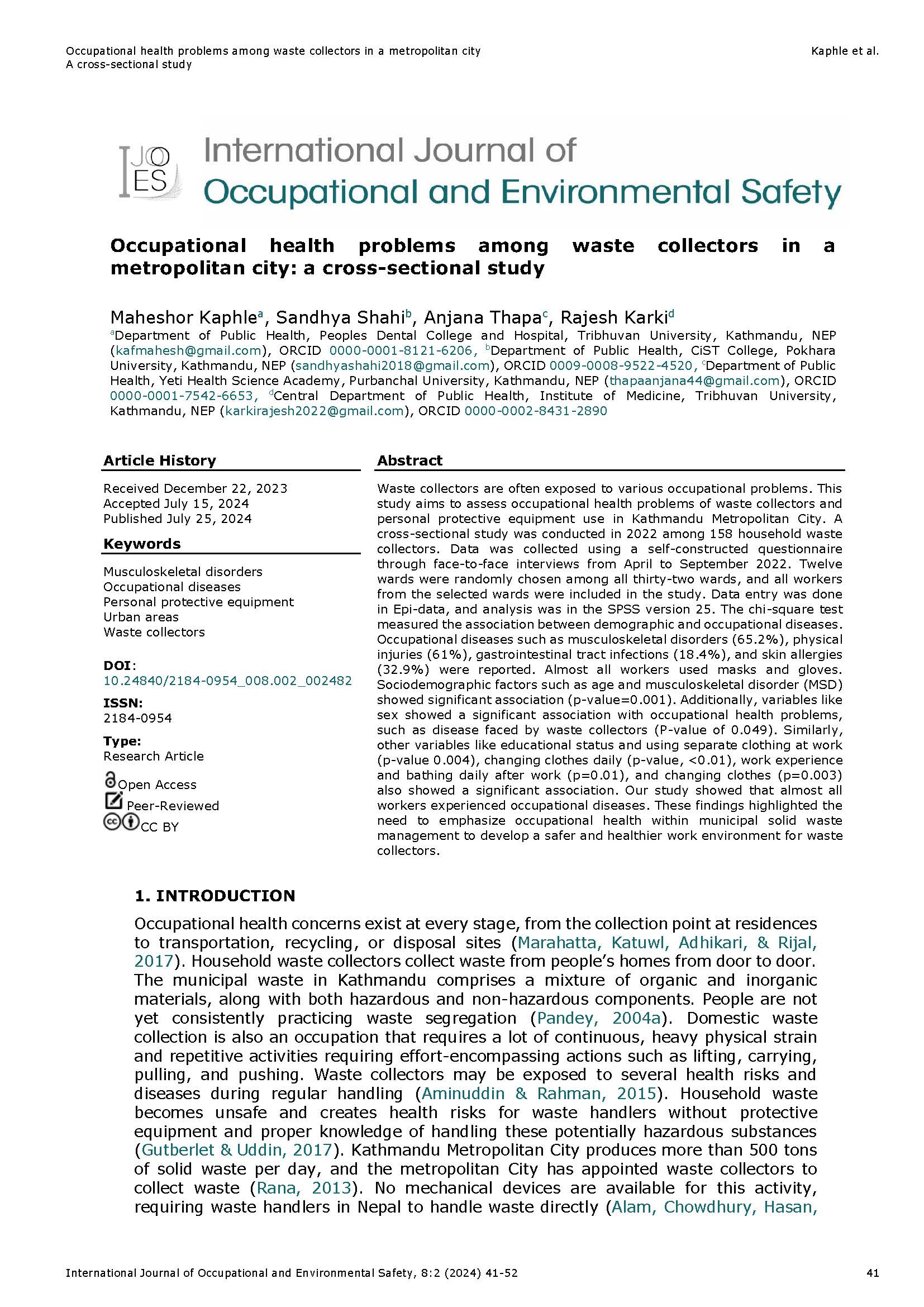Occupational health problems among waste collectors in a metropolitan city: a cross-sectional study Article
Main Article Content
Abstract
Waste collectors are often exposed to various occupational problems. This study aims to assess occupational health problems of waste collectors and personal protective equipment use in Kathmandu Metropolitan City. A cross-sectional study was conducted in 2022 among 158 household waste collectors. Data was collected using a self-constructed questionnaire through face-to-face interviews from April to September 2022. Twelve wards were randomly chosen among all thirty-two wards, and all workers from the selected wards were included in the study. Data entry was done in Epi-data, and analysis was in the SPSS version 25. The chi-square test measured the association between demographic and occupational diseases. Occupational diseases such as musculoskeletal disorders (65.2%), physical injuries (61%), gastrointestinal tract infections (18.4%), and skin allergies (32.9%) were reported. Almost all workers used masks and gloves. Sociodemographic factors such as age and musculoskeletal disorder (MSD) showed significant association (p-value=0.001). Additionally, variables like sex showed a significant association with occupational health problems, such as disease faced by waste collectors (P-value of 0.049). Similarly, other variables like educational status and using separate clothing at work (p-value 0.004), changing clothes daily (p-value, <0.01), work experience and bathing daily after work (p=0.01), and changing clothes (p=0.003) also showed a significant association. Our study showed that almost all workers experienced occupational diseases. These findings highlighted the need to emphasize occupational health within municipal solid waste management to develop a safer and healthier work environment for waste collectors.
Article Details

This work is licensed under a Creative Commons Attribution 4.0 International License.

